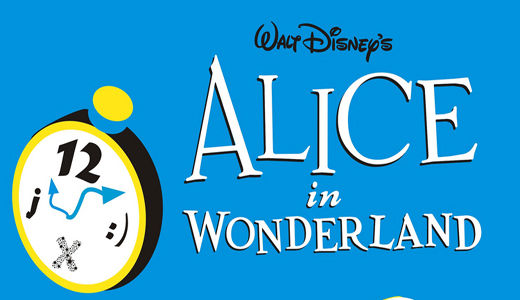
No copyright worries in Disneyland
The next time a rich corporate chieftain whines about higher taxes or says he’s “just like you and me,” take him to Disneyland. It may remind him how he’s not.
There, creative people always build on the creative work of others, and the creative types in the Walt Disney empire, notes analyst Jay Walljasper, have certainly been no exception. They’ve been turning creative works in the public domain into profitable blockbusters ever since Snow White appeared in 1937.
They’ve taken – without paying royalties and at no charge-the Jungle Book from Rudyard Kipling, the Little Mermaid from Hans Christian Anderson, and Alice in Wonderland from Lewis Carroll. All these works had outlived their original copyright.
What about Disney’s own creations? Disney lobbying has helped extend copyrights on Mickey Mouse and Donald Duck to over 100 years, essentially double previous limits. In fact, Disney has not yet “lost” a story to the public domain.
Disney CEO Robert Iger is certainly cashing in on that victory. He took home, Disney disclosed last month, $40.2 million in 2012. That’s far less than the royalties Disney will continue to get for years from Mickey’s laughs and Donald’s quacks.
The right way to pull strings
Then there’s the mogul who decides to push his clout out in the open, but only after pulling strings in his favor. Meet Art Pope.
Pope, a billionaire who owes his fortune to a discount store network his daddy built, certainly thinks so. Pope spent over $40 million in recent years gerrymandering North Carolina, and the state now sports a GOP governor, a conservative state Supreme Court majority, and a GOP-dominated state legislature all at the same time-for the first time in over a century.
But Pope isn’t resting on those laurels. He had himself appointed state budget director. In February, his budget priorities made national headlines. In North Carolina, a state with America’s fifth-highest jobless rate, lawmakers slashed maximum weekly unemployment benefits from $535 to $350, cut the number of benefit weeks allowed, and denied 39% of the state’s 438,000 jobless special federal aid.
Buy your own island
Feeling a little cramped by lack of land around your house these days? Then do what Joanne Margossian did: Buy your own island.
A deep pocket who splits her time between the United States and Britain, Margossian outbid competitors from five continents to become the new owner of a luxury private island that sits in a County Mayo bay in Ireland. For just $3.81 million, she gets a 65-acre isle that features a 6-bedroom main residence with a music hall, five other residences, orchards, a boat house, and, of course, a pier.
The previous owner had bought the island for just $1.3 million in 2003 and reportedly spent millions trying to turn Inish Turk Beg-Irish for “small island of the wild boar”-into a luxury travel retreat where on overnight stay would run $12,000. But that owner apparently spent himself into a hole. Receivers put the island up for sale.
Petulant plutocrat of the week
Joe Jimenez probably figured he’d be enjoying the high life when he left the U.S. just over a decade ago to ply Europe’s CEO circuit. But things turned a little bumpy of late.
Jimenez, the current top dog at the Basel-based drug giant Novartis, desperately tried to stave off passage of a March 3 Swiss ballot initiative to ban CEO signing bonuses and golden parachutes, require shareholder approval of all CEO pay plans, and jail-for up to three years-any execs who violate the new rules.
The referendum’s passage, Jimenez argued would put Swiss firms at a “competitive disadvantage.” So did most of his corporate colleagues. But Swiss voters tuned Jimenez and his class out. His 2012 CEO pay, Switzerland’s highest, quadrupled the European CEO pay average. Instead, they heeded the initiative’s advocate, herbal toothpaste executive Thomas Minder. Polls showed 65 percent of the Swiss public supported the CEO pay limits. That was low: It won 67.9 percent.
Stat of the week:
Who’s gaining from the higher productivity of American workers? Not American workers, especially not minimum wage workers. If the federal minimum wage had grown just one quarter as fast as productivity since 1968, economist John Schmitt calculates, the minimum today would stand at $12.25. Today’s actual minimum: $7.25. President Obama proposes raising it to $9.
Veteran labor journalist Sam Pizzigati edits Too Much, an online journal of wealth and inequality sponsored by the Institute for Policy Studies. E-mail: editor@toomuchonline. org.
Photo: Wealth has been accumulated in Disneyland by adapting classic characters like Lewis Carroll’s Alice in Wonderland. Juanjo Cristiani/Flickr

MOST POPULAR TODAY

‘Warning! This product supports genocide’: Michigan group aims to educate consumers

After months of denial, U.S. admits to running Ukraine biolabs


“Trail of Tears Walk” commemorates Native Americans’ forced removal

Hold the communism, please: SFMOMA’s Diego Rivera exhibit downplays artist’s radical politics






Comments